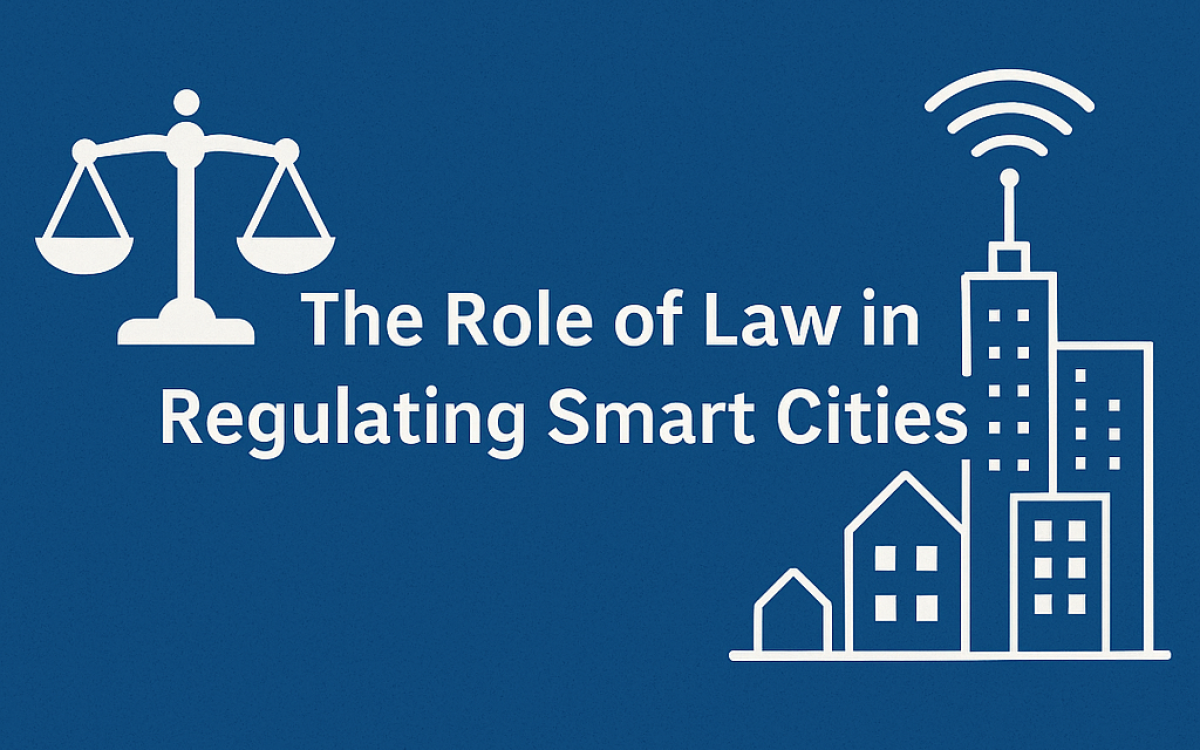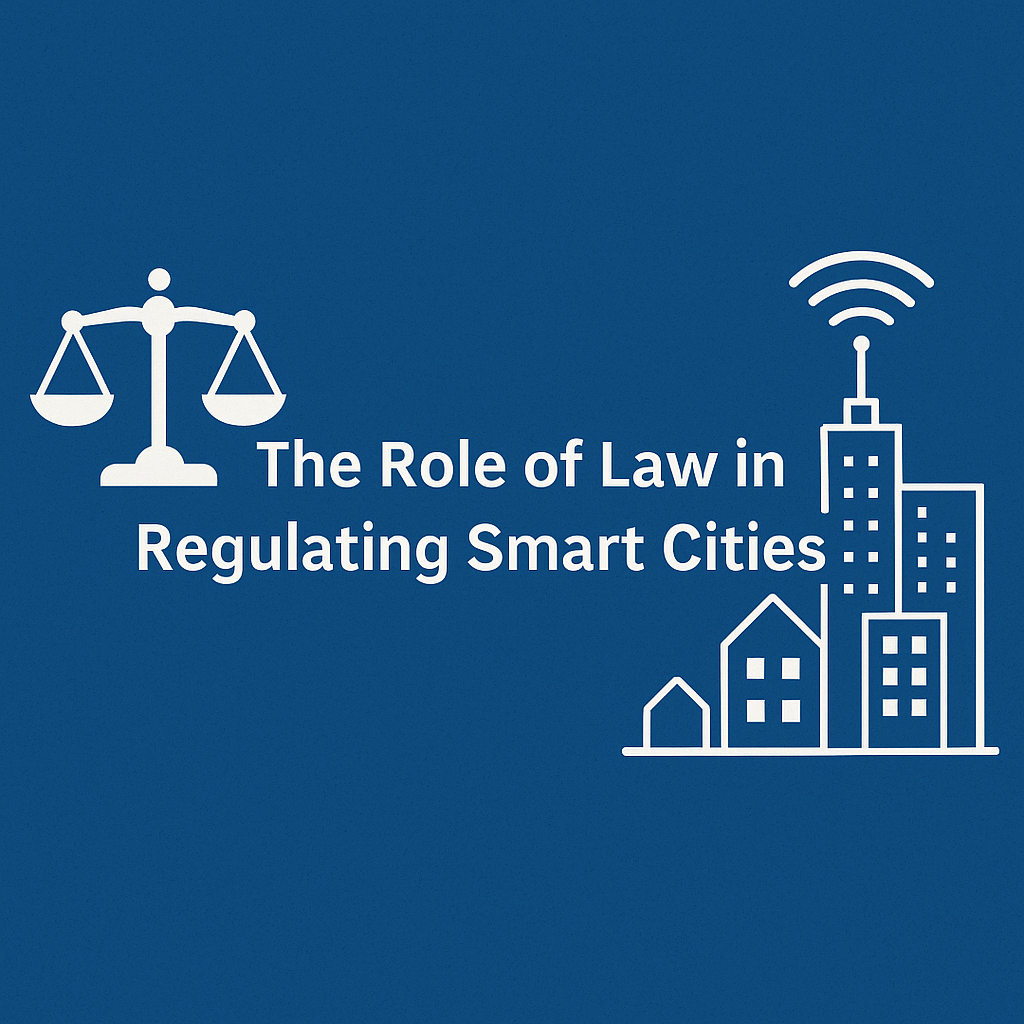Smart cities are reshaping how urban areas function. These tech-driven ecosystems use sensors, data, and connectivity to improve infrastructure and services. However, this digital transformation brings legal complexities. Laws play a vital role in ensuring transparency, accountability, and security within smart cities.
Legal Frameworks for Data Governance
Smart cities thrive on data. From traffic lights to waste systems, every component collects and shares information. Proper data governance is essential. Legal frameworks must ensure data privacy and protection.
Laws like the GDPR in Europe offer clear standards. They guide how public authorities and private firms collect, process, and store personal data. Cities must follow these rules strictly. Consent, access rights, and secure storage are legal necessities in every smart city.
Privacy and Surveillance Regulations
Smart cities use surveillance tools, including facial recognition and tracking systems. These tools help enhance safety but raise privacy concerns. Laws must set clear boundaries.
Citizens should know when and how surveillance is used. Regulations must ensure that collected data is not misused. Legal oversight prevents overreach and protects civil liberties. Balancing innovation with individual rights is critical.
Cybersecurity Laws and Infrastructure Protection
Smart cities are vulnerable to cyber threats. Hackers can target transport networks, energy grids, and emergency services. Strong cybersecurity laws are essential.
Governments must enforce standards for encryption, system audits, and incident response. Private sector operators must comply with these legal mandates. A legal framework helps ensure every smart component is protected against breaches.
Intellectual Property Rights in Smart Technologies
Smart city technologies are often built on proprietary systems. Developers and tech firms need legal protection for their innovations. Intellectual property laws help secure their rights.
However, smart cities must also promote open access and interoperability. Legal strategies must balance exclusive rights with public interest. Licensing agreements and patent rules need to support innovation and fair use.
Public-Private Partnerships and Legal Contracts
Many smart city projects rely on public-private partnerships (PPPs). These partnerships require clear legal contracts. Responsibilities, liabilities, and risk-sharing must be well defined.
Governments must ensure accountability in these contracts. Legal checks must prevent corruption, ensure transparency, and protect public resources. Standardized legal procedures can streamline smart city collaborations.
Environmental Regulations in Urban Innovation
Sustainability is central to smart cities. Legal norms must support green innovations. Environmental regulations should govern emissions, energy use, and waste management.
Smart city plans must comply with national and international environmental laws. Legal tools can also promote incentives for eco-friendly technologies. This approach helps align smart growth with environmental goals.
Urban Planning and Zoning Laws
Smart cities often redefine how spaces are used. Zoning laws and urban planning codes need to evolve. Legal updates should accommodate mixed-use developments, mobility hubs, and green zones.
Local governments must revise outdated regulations. Smart cities demand flexibility and integration in planning. Legal clarity helps avoid conflicts and ensures sustainable urban growth.
Citizens’ Rights and Legal Participation
Citizens must have a voice in smart city development. Laws should guarantee participation, feedback, and grievance redressal. Public consultations and digital platforms can support legal transparency.
Legal frameworks must empower communities. They should promote inclusivity, prevent digital exclusion, and protect vulnerable groups. Citizen-centric laws make smart cities truly democratic.
Conclusion:
Smart cities cannot operate in a legal vacuum. Law offers the foundation for trust, fairness, and accountability. As urban areas become smarter, legal systems must become sharper. A robust legal framework ensures that smart cities serve people first—safely, fairly, and sustainably.








1 Comment
Your comment is awaiting moderation.
Maslak su kaçak tespiti Termal kamera ile kaçak tespiti yaptılar, çok pratik bir yöntem. https://direc.ircg.ir/author/kacak/
Your comment is awaiting moderation.
Kısıklı su kaçak tespiti Uzman ekip sayesinde su kaçağı sorunumu hızlıca çözdüm. https://www.iranto.ir/uskudar-tesisatci-petek-temizleme/
Kayışdağı su kaçak tespiti Modern Ekipmanlar: Eskiden kırarak tespit yapılırdı, artık bu cihazlarla çok daha kolay. https://www.seint-ec.com/?p=3632